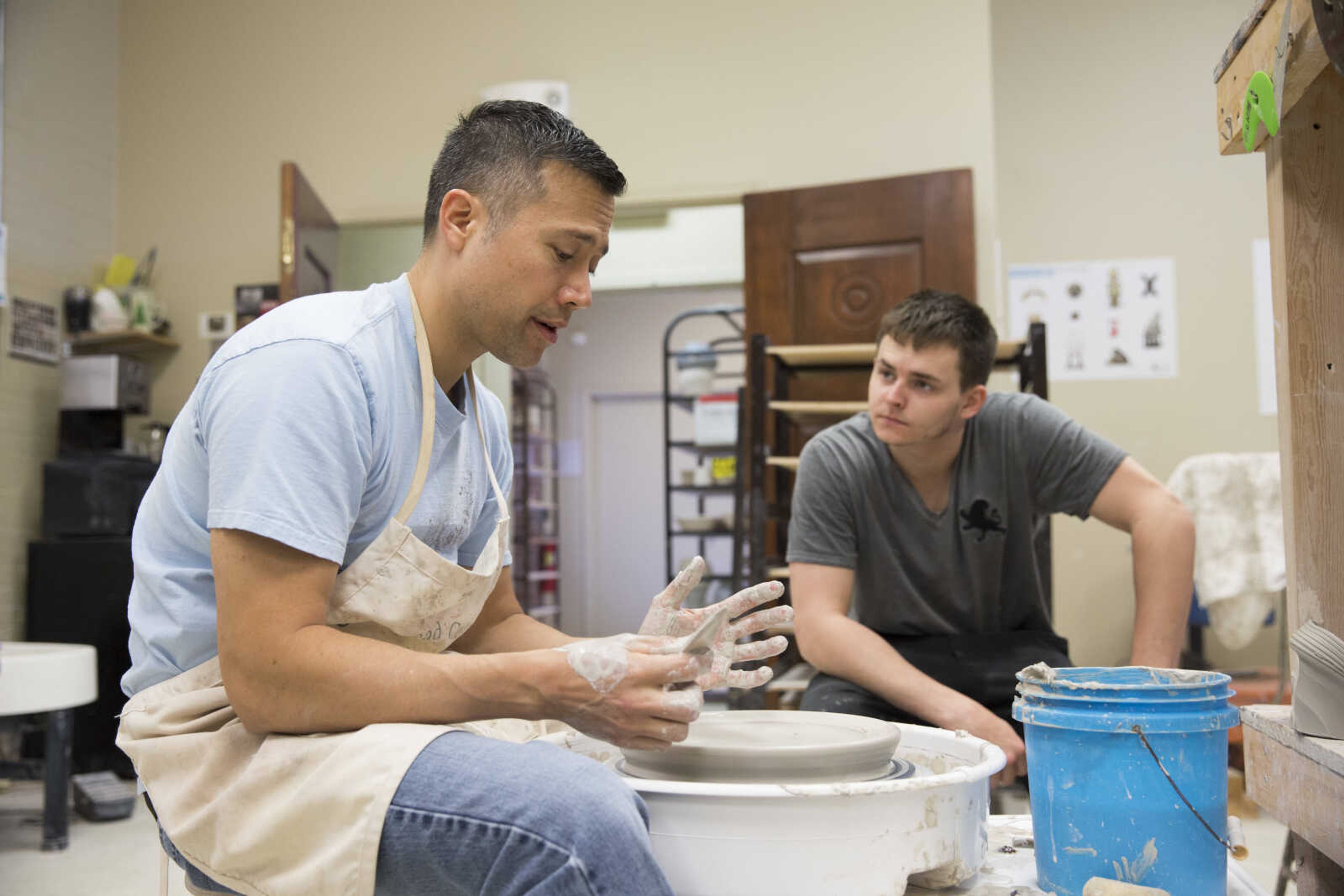Recruiting local students to stay in the Southeast Missouri region has become difficult, as only 20% of students remain in the area upon graduation, according to Chamber Vice President Kim Voelker.
As a result, the Cape Chamber of Commerce started the ConnectCape program, an effort to help keep area students local.
Voelker said too many students have been leaving the area, a trend which has a negative impact on the availability of employees. One aim of the partnership is to “look for workforce solutions” by connecting students to local business professionals.
The goal of the program is to ensure students who are trained or educated locally will build career connections in the area workforce by shadowing employers in the free program.
That started with a partnership two years ago between Southeast and the Chamber as well as Notre Dame and Cape Central high schools.
This year, Voelker said they’re looking to get more schools on board, and the Chamber has been in discussions with Saxony Lutheran High School.
“With those students coming out of high school, there may be some opportunities for those businesses to say, ‘Hey, do you want to be an intern?’” Voelker said.
Through the program, area students have access to member businesses of the Cape chamber for future employment or internship opportunities, Voelker explained.
She estimated the program has matched 100 students in areas ranging from biomedical science to forensics to law enforcement. For particular jobs, pairing students can be difficult, such as in the health sciences where certain patient protection laws apply.
Voelker said some high school students who participate in ConnectCape don’t plan to attend college while others do.
“It really just depends on what field they’re interested in,” Voelker said. “But one thing at the chamber that we are trying to do is look for workforce solutions, and we know that there are jobs that require a college degree, and there are those that don’t.”
This led program organizers to emphasize opportunities for high-skilled laborers and manufacturers who would not need a college degree, she said, where shortages exist within the community. Voelker said hopefully those shadowing experiences the chamber has paired will lead to added employees for the industry.
“What we would love to see is students that have an interest in [engineering] getting placed in a manufacturing setting and then making the connection and the next thing you know, they’re out of high school making a great living,” she said.
Students have come away from the shadowing with great reviews of their experience. Voelker said the positive feedback from program participants is "really across the board."
Southeast Career Services Director Dan Presson said he has heard positive responses from the businesses in the area. His department collaborates with the Chamber to refer students to particular companies matching their interests.
Presson said it also benefits students by helping them make up their mind one way or another about a prospective career path once they have actually experienced the job.
Voelker also said she’s heard back from students who came away from jobs thinking, “‘You know, that’s not what I thought it would be.’”
Initially the program was aimed at university seniors, but it has now been expanded to entry-level students.
The program's expansion to include area high school students is paying off at the collegiate level, too. Presson said the exposure to different careers has helped students shape their college plans by choosing majors based on workplace experiences.
“That’s why I thought it was such an important program, because the more students we can get off campus and into the community, maybe that will facilitate more internships, maybe that will facilitate more part-time jobs,” he said.
Presson added this is a chance for students to gain on-the-job skills corresponding to their majors by leaving campus and building bonds.
“Maybe that means the city of Cape Girardeau can keep really talented people in the region post-graduation,” he said.
The next round of the shadowing session with the ConnectCape program will begin this spring, and promotions by both Southeast and the Cape Chamber will start in the near future.






